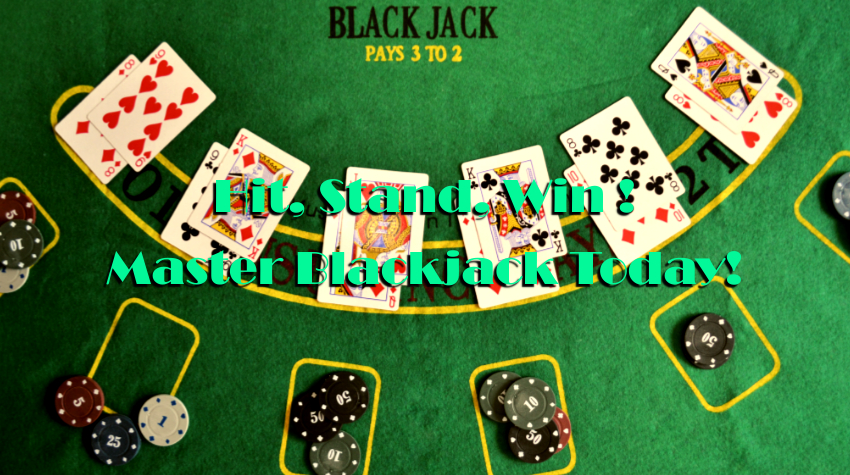Blackjack is one of the most popular casino games worldwide, combining simple rules with a touch of strategy. While luck plays a significant role in the outcome, knowing the right strategies can significantly increase your chances of winning. Whether you’re playing at a traditional casino or enjoying the game online at Queen Casino, understanding the best strategies for Blackjack is essential for beginners.
This comprehensive guide will walk you through the key Blackjack strategies every beginner should know. From when to hit or stand to how to manage your bankroll, we’ll cover the essential tactics to help you play smarter and increase your odds of success.
Understanding the Basics of Blackjack Strategy
The Objective of Blackjack
Before diving into strategies, it’s important to understand the basic objective of Blackjack. The goal is to beat the dealer by having a hand value closer to 21 than the dealer’s hand, without going over 21. In Blackjack, face cards (Jack, Queen, and King) are worth 10 points, Aces are worth 1 or 11 points, and all other cards are worth their face value.
- Winning the Game: To win, your hand needs to total 21 or as close to it as possible, without exceeding it.
- Dealer’s Role: The dealer must follow strict rules—drawing cards until they reach at least 17. If the dealer busts (goes over 21), all players win.
The Importance of Strategy
While the outcome of Blackjack is influenced by the cards dealt, strategy allows players to make smarter decisions and reduce the casino’s advantage. With the right strategy, you can lower the house edge and improve your chances of winning.
Basic Blackjack Strategies for Beginners
Knowing When to Hit and Stand
The most fundamental decision in Blackjack is whether to hit (take another card) or stand (keep your current hand). Here’s when you should do each:
- Hit: Always hit if your hand totals 8 or less, as you can’t bust. For totals of 12-16, hit if the dealer shows a 7 or higher.
- Stand: Stand if your hand totals 17 or higher. If you have a soft 18 (an Ace and a 7), stand against a dealer’s 2-8, but hit against a 9, 10, or Ace.
Example: If you have a hand with a 5 and a 3 (total of 8), you should always hit. If you have a 10 and a 7 (total of 17), you should stand.
When to Double Down
Doubling down is one of the most powerful moves in Blackjack, allowing you to double your bet in exchange for receiving one more card. Here’s when to consider doubling down:
- When to Double Down: You should double down when you have a total of 9, 10, or 11. If the dealer shows a weak card (2-6), it’s often a good time to double down, as the dealer has a higher chance of busting.
Example: If you have 10 and the dealer has a 5, you should double down. The dealer is more likely to bust, and you’re in a good position to win with an additional card.
Advanced Blackjack Strategies
The Basic Strategy Chart
For beginners, using a basic strategy chart can significantly improve your decision-making. The chart outlines the optimal move (hit, stand, double down, or split) based on the total of your hand and the dealer’s upcard.
- Example: If you have a hand of 16 and the dealer shows a 7, the basic strategy chart will recommend standing. However, if the dealer shows a 10, the chart will suggest hitting.
How to Manage Your Bankroll
Bankroll management is crucial for any Blackjack player, especially beginners. Setting limits on your bets and knowing when to stop can help you enjoy the game while minimizing losses.
- Set a Budget: Before you start playing, decide how much money you are willing to spend and stick to it. Never exceed this limit, even if you’re on a losing streak.
- Bet Size: For beginners, start with smaller bets to minimize risk. As you become more experienced, you can increase your bet size within your bankroll limits.
Common Blackjack Betting Systems
The Martingale Betting System
The Martingale betting system is a popular strategy in many casino games, including Blackjack. The system involves doubling your bet after each loss, with the idea that you will eventually win and recover all of your losses.
- How It Works: If you lose a bet, you double your next bet. For example, if you bet $10 and lose, your next bet would be $20. If you lose again, your next bet would be $40, and so on until you win.
- Risks: While the Martingale system can be effective in the short run, it’s important to remember that losing streaks can quickly deplete your bankroll. The system is only effective if you have a large enough bankroll to withstand multiple losses.
The Paroli Betting System
The Paroli system is a positive progression betting system, which involves increasing your bet after a win instead of a loss. The goal is to take advantage of winning streaks while protecting your bankroll during losing streaks.
- How It Works: You start with a small bet (e.g., $10). If you win, you double your bet on the next round. If you win again, double it again. After three consecutive wins, return to your original bet.
- Advantages: The Paroli system limits the amount of money you risk during losing streaks, and it capitalizes on winning streaks.
Card Counting in Blackjack: Is It Effective?
What is Card Counting?
Card counting is an advanced strategy used to determine the relative proportion of high cards to low cards remaining in the deck. By keeping track of the cards that have been dealt, players can gain an advantage by betting higher when more high cards are left in the deck.
- How It Works: Card counters assign a value to each card. Low cards (2-6) are assigned a positive value, while high cards (10-Ace) are assigned a negative value. By keeping a “running count” of the cards, players can estimate when the deck is in their favor.
The Legality of Card Counting
While card counting is not illegal, it is frowned upon by casinos. Casinos have the right to ask players suspected of card counting to leave the premises. Many online casinos use automatic shuffling machines to make card counting more difficult, so it’s less effective in online Blackjack.
- Risks of Card Counting: Card counting requires exceptional concentration and skill. In land-based casinos, it’s also difficult to count cards without attracting the attention of the casino staff.
Blackjack Etiquette and Tips for a Better Experience
Playing with Other Players
When playing Blackjack in a live casino or online with live dealers, you’ll often share the table with other players. Here are some key etiquette tips:
- Respect Other Players: Avoid distracting other players or the dealer. Keep conversation friendly and don’t criticize other players’ decisions.
- Don’t Rush the Dealer: The dealer has a set process for each hand, so allow them to deal at their own pace.
Handling Losing Streaks
Losing streaks are inevitable in Blackjack, and it’s essential to stay calm and composed. Here are some tips for managing losing streaks:
- Stay Within Your Limits: Stick to your predetermined betting limits to avoid excessive losses.
- Take Breaks: If you’re feeling frustrated or emotionally affected by losses, take a break. Clear your mind and return to the game with a fresh perspective.
Conclusion: Play Smarter and Win at Blackjack

\ Hit, Stand, Win! /
Blackjack is a game of skill, and understanding the right strategies can make a huge difference in your chances of winning. By following the basic strategy, practicing bankroll management, and using effective betting systems, you can improve your performance and enjoy the game to the fullest.
Whether you’re a beginner or a more experienced player, applying the strategies outlined in this guide will help you play smarter and increase your chances of success. If you’re ready to put your skills to the test, head over to Queen Casino to play a variety of Blackjack games and start winning today!









Comments